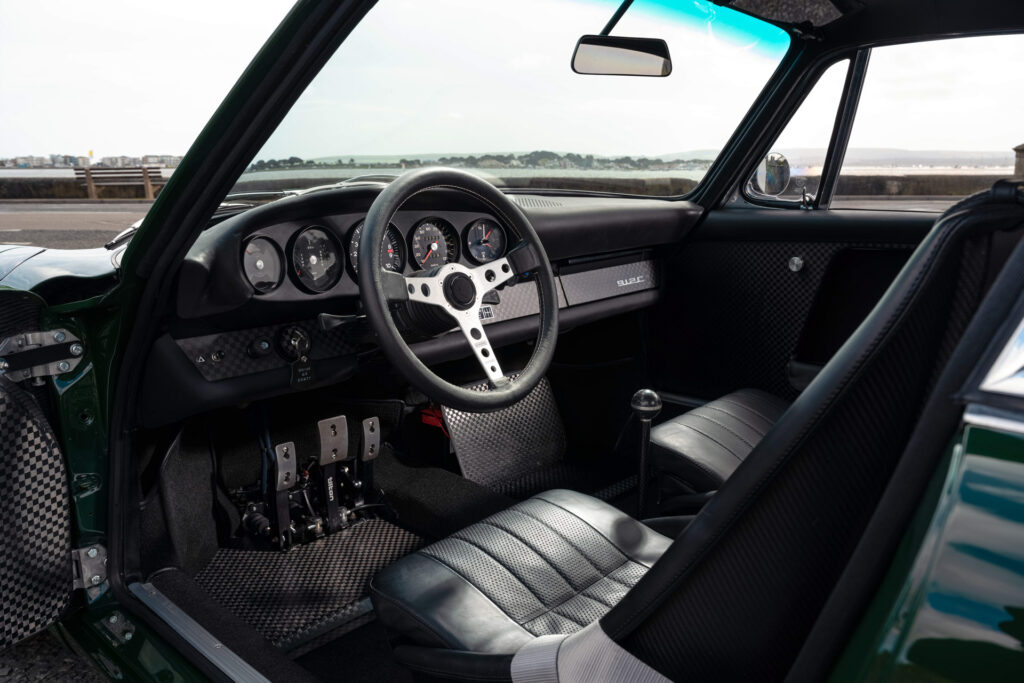There are so many companies resto-modding old Porsches that it’s hard to keep track, but KAMManufaktur sticks in the mind for a few reasons. First, it comes from Budapest in Hungary, not Germany, the UK or America, and most importantly, because it mods the four-cylinder 912, rather than its more obvious 911 big brother.
We first got a look at the Kamm 912c last September, but now the company is ready to roll out the production version which incorporates some important differences, including a big jump in power, electronic fuel injection and a full carbon body option.
The original 912 sold between 1965 and 1969 was designed to plug the gap left when the 911 arrived to take over from the 356 but moved upmarket with six-cylinder power and a higher price. The 912 mated the 911 shell with the basic 89 hp (90 PS) 1.6-liter motor from the 356, but Kamm’s car has been opened up to 2.0-liters and makes more than twice as much grunt. The prototype was claimed to make 168 hp (170 PS) and 159 lb-ft (215 Nm), but that’s since swelled to 187 hp (190 PS) and 168 lb-ft (228 Nm) for production.
Those numbers are roughly what Porsche quoted for a 1972 911 2.4S, but the beauty of the 912, and in particular this 912, is how much less mass the engine has to move. Kamm quotes a with-fluids weight of just 1,655 lbs (750 kg), making it half as heavy as a 2023 base model 911 Carrera.
Related: Singer Reveals Its First Cabriolet With Restomod Porsche 930 Turbo

Though the engine might have become even more frenzied, the steering has been calmed with a new 2.5-turns rack replacing the original 1.7 turns unit. And Kamm says the ratios in the five-speed dogleg-shift manual transmission have been tweaked to improve cruising comfort.
One of the other big changes appears to be the price, which is now €360,000 ($391,000 / £313,000) if Kamm supplies a donor car, or €320,000 ($348,000 / £278,000) if you hand them a 912 along with your cash. When the car was revealed last fall the price was estimated at €325,000 ($353,000 / £283,000) including a donor. And of course those numbers are just starting points. Go for the full carbon body or race-tuned version of the 2.0-liter engine and the bill will grow dramatically.
Most people would probably say they’d rather have a ‘real’ 911 for that money, but Kamm has created something with a very different character and it seems to have worked out a nice niche for itself because the company only has two build slots left for 2023.
Would you pay $391,000 for the ultimate analog four-cylinder Porsche driving experience or does a 911 body need a 911 engine to justify that price? Let us know in the comments.

















